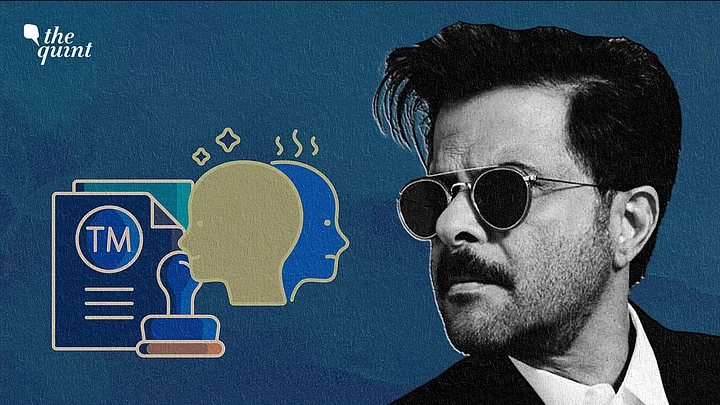“Fame is a fickle friend, Harry. Celebrity is as celebrity does. Remember that" – Gilderoy Lockhart’s counsel to the boy wizard in The Chamber of Secrets indeed forms the bedrock of a certain branch of law in the Muggle world.
Who would have predicted that Amitabh Bachchan’s baritone and hairstyle, Anil Kapoor’s quintessential style of dialogue delivery, Govinda’s hip thrusts, Nana Patekar’s laughter, Sachin Tendulkar’s gait, among others, would one day become intangible assets in the realm of fame, to be protected, monetised and administered through licenses?
The purpose of this piece is not to add to the existing mountain of scholarship on the topic but to direct attention to the humble practicalities of issuing and managing licenses, particularly to individuals who make a living, embodying Oscar Wilde’s famously abridged and oft-repeated quote, “Imitation is the sincerest form of flattery…”. I refer to comedians and lookalikes, who, under certain situations, now, may have to obtain licenses from celebrities in order to have the legal sanction to mimic them.
The Hon’ble Delhi High Court's recent ruling protecting actor Anil Kapoor's Personality Rights has spurred extensive conversation on the subject. This ruling comes close on the heels of similar decisions in favour of Amitabh 'Big B’ Bachchan, preceded by Rajinikanth, who appear to be unwittingly shaping the contours of this relatively uncharted branch of law in India.
Kapoor’s case is of special relevance as the websites misusing his likeness were alleged to be utilising his name, likeness, image, voice, personality, and other aspects of his persona to create merchandise using Artificial Intelligence, Machine Learning, Deep Fakes, and Face Morphing.
The Hon’ble Court, being satisfied that "dilution, tarnishment, blurring” of Kapoor’s name and persona had occurred, ordered the suspension of several of the offending domain names aside from restraining the dissemination of Kapoor’s videos.
What Falls Under the Ambit of Personality Rights?
Before we dive into the matter, though, a brief primer on Personality Rights is necessary.
Personality Rights or Celebrity Rights are currently not recognised under any Indian statute. However, the Supreme Court of India as well as High Courts have, over the years, frowned upon the misappropriation of aspects of a celebrity’s person such as their name, voice, persona, likeness for commercial gains.
The courts have recognised that violating the personality rights of a celebrity involves a violation of their right to privacy which goes against the Right to life and liberty guaranteed to all Indians under Article 21 of the Constitution.
Personality Rights may also be exercised through trademark and copyright law, in that, while the former protects a celebrity’s name, likeness, and image, the latter safeguards a celebrity’s performance and recording and reproduction thereof.
When Can a License Be Issued?
When it comes to lookalikes and mimicry artists, legal experts agree that small-time mimics may not attract legal claims.
However, anybody looking at mimicry as a means of livelihood should seek permission from celebrities and in the absence of so, make it clear that such celebrity has not sanctioned their act.
Irrefutable as this is, issuance and management of such permissions and licenses may raise more questions than they answer.
For example:
In televised comedy shows like The Great Indian Laughter Challenge, who is required to obtain celebrity licenses, the producer of the show or the artists?
Would a license be required for auditioning at such television shows?
Would separate licenses be required for stage shows and television performances?
Would license fee be determined on a case-to-case basis or would standard rates apply?
What would comprise breach of a personality rights license?
Till what extent, if at all, would this new development limit creative expression as artists may be discouraged from performing certain acts due to license costs?
An actor's personal traits are likely to be different from that of a character portrayed by him in a movie, thus, would mimicking the character absolve the artist from obtaining permission from the actor?
The Double-Edged Sword Of Licensing
While industry practices may exist to address some of the above questions, a more comprehensive understanding of the management of celebrity rights licensing is required.
The importance of protection of Celebrity Rights is indisputable, especially in a world where Artificial Intelligence and Web3 are a reality.
Developments in this area of law are bound to have repercussions on televised comedy shows in India, but one can only hope that the license regime does not turn into an oppressive tool creating roadblocks to creative expression.
As more judicial precedents shape the theoretical aspects of this branch of law, it will be interesting to watch how these theories are put to work in the practical landscape.
(Ronojoy Basu and Arunava Mukherjee are Intellectual Property Rights Attorneys and founders or A. Mukherjee & Co., a Kolkata-based IP law firm. This is an opinion article and the views expressed above are the author’s own. The Quint neither endorses nor is responsible for them.)
